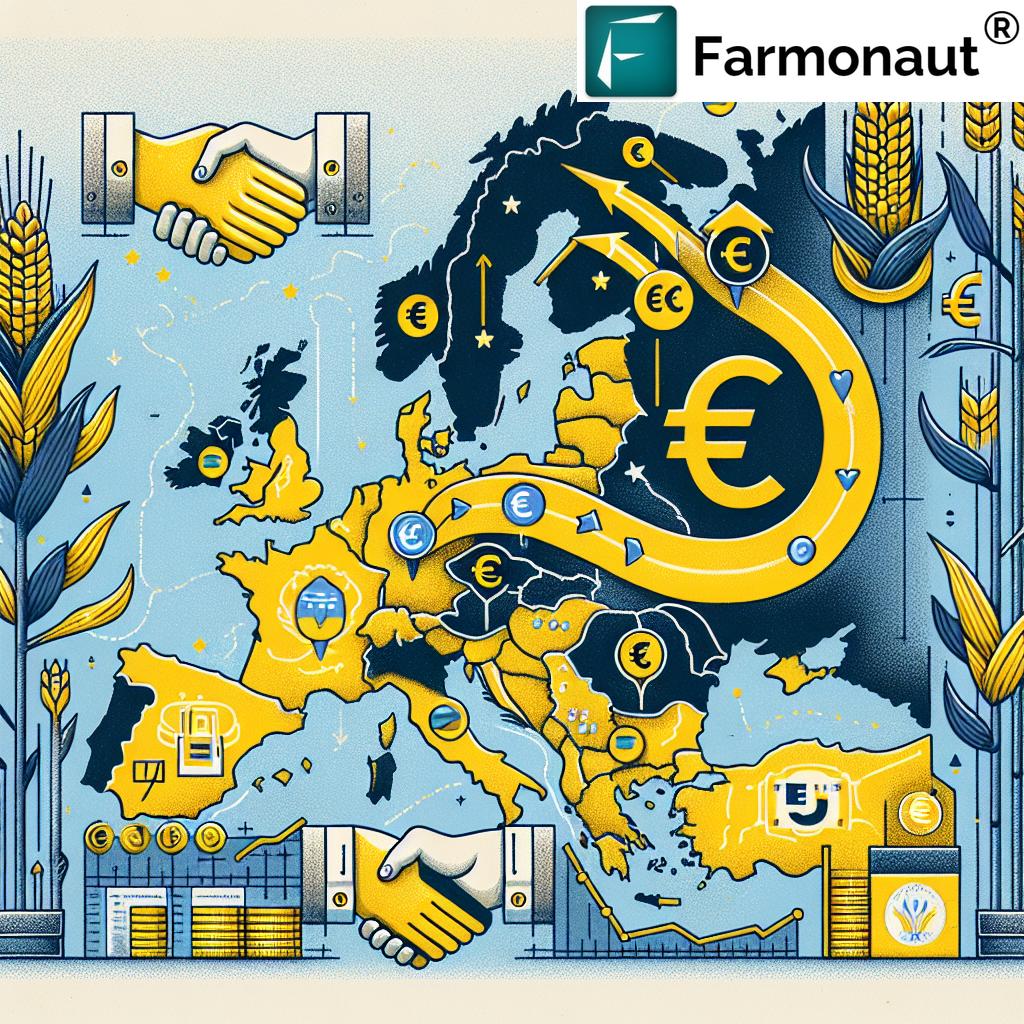Explosive Growth: Ukraine’s Corn Seed Exports Surge, Shaking EU Farmers and Transforming Agricultural Trade

In a surprising turn of events, Ukraine’s corn seed exports to the EU have experienced a meteoric rise over the past two years. This development marks a rare bright spot for Ukraine’s war-battered agricultural sector but has simultaneously ignited concerns among European farmers about intensifying competition. The dramatic shift in agricultural trade dynamics in Europe is reshaping the continent’s seed industry landscape and sparking debates about fair trade practices.
Ukraine’s Agricultural Sector: A Phoenix Rising from the Ashes
Despite the ongoing conflict with Russia, Ukraine’s agricultural sector recovery has been nothing short of remarkable. The country’s total seed exports, primarily corn (maize), skyrocketed to $121 million in 2022, a staggering increase from the pre-war level of just $22 million in 2021. This explosive growth has been largely attributed to the free trade terms granted by the European Union following Russia’s invasion.
- Ukraine’s share in the EU corn seed market has surged from 0% to approximately 10% since 2021
- Seed exports represent a fraction of Ukraine’s total agricultural exports but offer higher profit margins
- The profit margin for seed production is nearly double that of corn production
Siuzana Grygorenko, head of the Seed Association of Ukraine, emphasizes the crucial role of exports in sustaining seed producers during 2022-23. This Ukrainian seed industry growth has injected much-needed income into the country’s farm industry, which has been grappling with significant losses due to the destruction of land and infrastructure in the ongoing war.
The Economics of Seed Production: A Lucrative Venture
While seed production demands more effort than standard crops, the financial rewards are substantial. According to Ukraine’s agriculture ministry:
- A metric ton of corn seed can be sold at $3,900, compared to $200 for a ton of corn grain
- Production costs are estimated at $1,800 per hectare for seed versus $900 for grain
- The higher selling price more than offsets the increased production costs
This seed production profitability has become a lifeline for many Ukrainian farmers, allowing them to weather the economic storm brought on by the conflict.

EU Agricultural Trade Tensions: A Growing Concern
The surge in Ukraine corn seed exports has not been without controversy. European farmers’ concerns about competition have reached a fever pitch, with many arguing that they struggle to compete with lower-cost Ukrainian products. This has led to significant agricultural trade tensions within the EU.
In response to these concerns, the EU has taken steps to address the situation:
- Introduction of import curbs on certain agricultural products from Ukraine, including sugar, eggs, and corn grain
- Continued monitoring of agri-food exports from Ukraine by EU authorities
- Calls from European corn growers for measures to limit corn seed imports
Arthur Boy, economic affairs advisor for the European corn growers association CEPM, stated that the influx of Ukrainian corn seeds is “extremely destabilizing for our market.” This sentiment echoes across various agricultural sectors in the EU, highlighting the complex balance between supporting Ukraine and protecting domestic farmers.
The Shifting Landscape of Seed Trade: France’s Changing Fortunes
Nowhere is the impact of this corn seed market share shift more evident than in France, the EU’s largest seed exporter. The French seed trade with Ukraine has undergone a dramatic transformation:
- France’s seed trade surplus with Ukraine plummeted from a record €100 million in 2020/21 to €41 million in 2022/23
- This shift represents a significant change in the balance of trade between the two countries
However, it’s important to note that Ukrainian authorities and industry representatives emphasize that their primary goal is to cover more of their domestic demand rather than focusing solely on exports. Ukraine still heavily relies on imports for oilseeds, with imports valued at $346.5 million from January to September 2023.
International Investment and Domestic Growth
The growth of Ukraine’s seed industry has attracted significant international investment. Companies like U.S.-based Corteva, France’s Maisadour, and Germany’s Bayer had established farm networks and seed processing facilities in Ukraine long before the war. Despite the conflict’s impact on domestic seed demand and the loss of the Russian market, many firms are doubling down on their investments in Ukraine:
- Bayer and KWS have invested tens of millions of euros to expand their processing facilities in Ukraine
- Ukrainian farm operator HarvEast increased its seed production area by 20% this year and plans similar growth next year
These investments underscore the potential that international companies see in Ukraine’s agricultural sector, despite the ongoing challenges posed by the conflict.
The Future of Agricultural Trade in Europe
As Ukraine’s corn seed exports continue to grow, the future of agricultural trade in Europe remains uncertain. The situation raises several important questions:
- How will the EU balance support for Ukraine with protection for its own farmers?
- Can European farmers adapt to increased competition from Ukrainian seed producers?
- What long-term impact will this shift have on the European agricultural landscape?
One thing is clear: the explosive growth of Ukraine’s corn seed exports has fundamentally altered the agricultural trade dynamics in Europe. As the situation continues to evolve, policymakers, farmers, and industry leaders will need to work together to find solutions that promote fair competition and sustainable growth for all parties involved.
For farmers looking to stay ahead in this changing landscape, tools like Farmonaut’s satellite-based crop monitoring system can provide valuable insights into crop health and productivity. By leveraging advanced technology, farmers can optimize their operations and remain competitive in an increasingly challenging market.
As the agricultural sector continues to evolve, staying informed and adapting to new realities will be crucial for farmers and industry stakeholders alike. The story of Ukraine’s corn seed exports serves as a powerful reminder of the resilience and adaptability of the agricultural sector, even in the face of significant challenges.
For more information on agricultural monitoring and analysis, visit Farmonaut’s Satellite API or check out the API Developer Docs for in-depth technical information.


